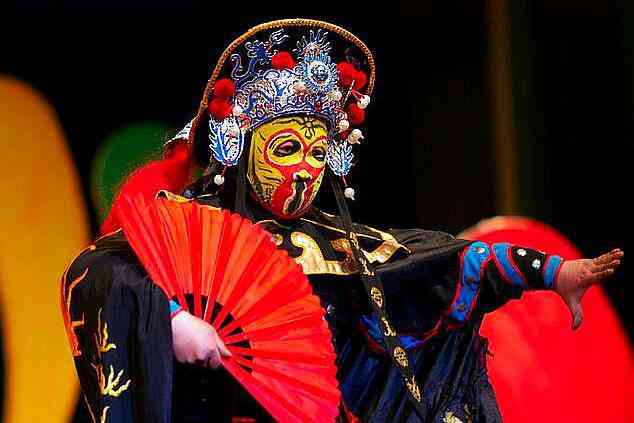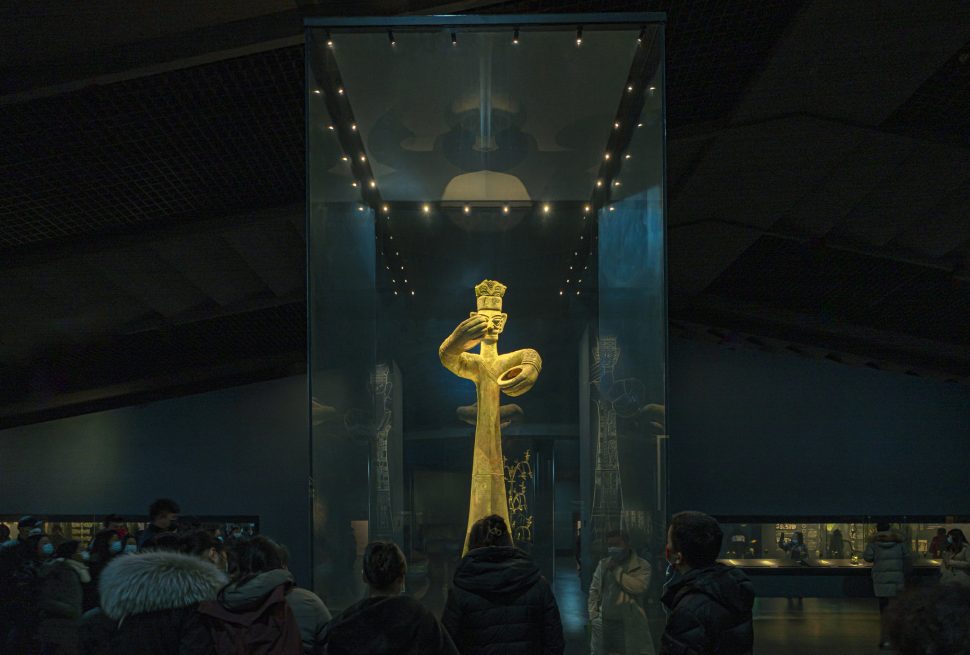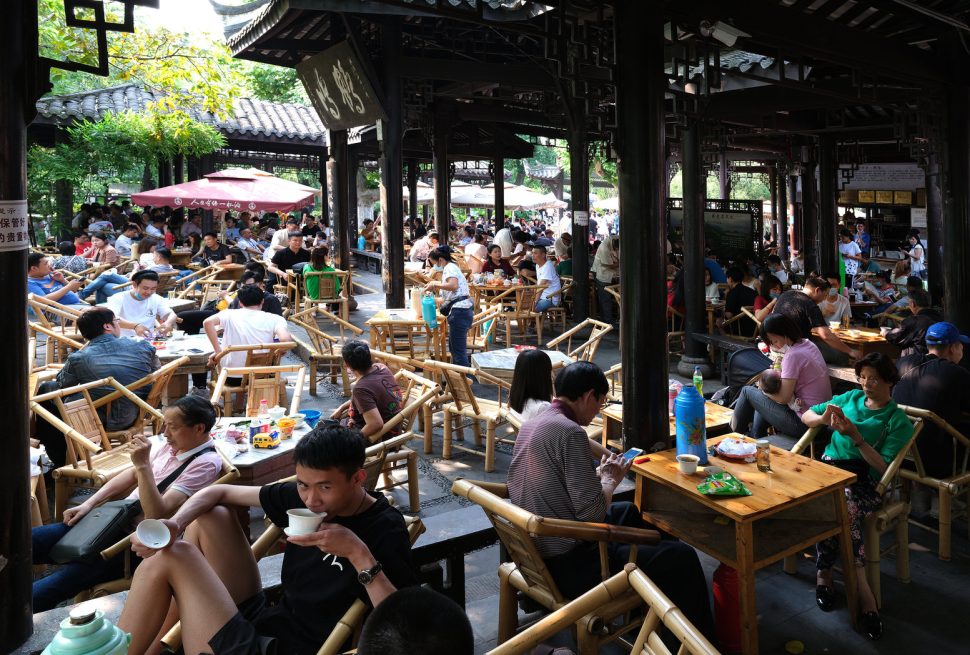On Sichuan Opera’s stage, by a brush stroke of oil paint and a flowing garment, the performers shake their heads, turn around, and shake their sleeves. With eyebrows in a moment, their face makeup is changed in a split second. And the audience is amazed, bringing down thunderous applause. This is Sichuan Opera face-changing, which is called a “national treasure, unique achievement, and miracle”.
Not only is it an epitome of Sichuan Opera, but it is also a typical representative of Chinese traditional culture. With thousands of years of artistic experience and the human spirit behind it, it is full of meaning.
I. Historical Origin of Face-Changing Art
The roots of Sichuan Opera face-changing can date back to the ancient sacrificial ceremonial mask culture. In the past, ancestors wore abominable masks to sing, dance, ward off evil spirits, and pray for fortune. As time evolved, this earlier art became incorporated into drama. Sichuan Opera was then crafted, and face-changing developed from constant practice on stage during the Qing Dynasty.
In ancient times, face-changing relied mainly on the skill of “posing faces”. Artists would carry masks and exchange them rapidly to enact the emotions of different characters. Subsequently, artists boldly innovated and developed more advanced methods, such as “pulling the face” and “blowing the face”.
II. Unveiling the Mysteries of Face–Changing
The Sichuan Opera face-changing methods are approximately divided into three categories: “wiping the face”, “blowing the face”, and “pulling the face”, each indicating individual ingenuity. “Wiping the face” means the actor applies the makeup paint in a particular place. During performance, the facial appearance can change with merely the touch of the hand.
For the “blowing face” performance, there is a small box with pigment powder on stage. The performer blows, which makes the pigment powder land on the face and, hence, the face-changing effect.
But the most fantastic technique is “pulling the face”. Before performance, the artist must apply facial makeup onto silk and then paste these layers onto the face. During performance, with great dexterity, the artist tugs at silk, peeling the facial makeup off layer by layer to achieve the face-changing process.
Each facial makeup change represents a different personality. A red face represents loyalty and courage, a white face represents treachery and cleverness, and a black face represents integrity. Actors vividly represent the inner contradictions and emotional struggles through the rapid and varied changes of facial makeup.

III. The Contemporary Mission of Face-Changing Art
With time, Sichuan Opera face-changing has gone beyond the Sichuan and Chongqing areas and reached international platforms. Now it’s a prominent representative of the promotion of Chinese culture. Overseas spectators are always fascinated by the mystical beauty of this “Oriental magic”.
Yet, with globalization and modernization trends, Sichuan Opera faces the challenge of its heritage. Issues such as the disappearance of youthful audiences, shortcomings in professional skills, and a lack of innovation in traditional repertoires have become increasingly urgent.
To revive this ancient art, numerous Sichuan Opera performers and cultural experts have conducted active explorations. On the one hand, they initiate activities such as school and community performances to nurture young people’s interest in Sichuan Opera. On the other hand, by taking advantage of advanced technology, they integrate face-changing with light and shadow effects, creating magical performance experiences.
Conclusion
As a travel agency whose roots run deeply in Chengdu for years, we understand the intricacies of Sichuan Opera face-changing. We offer you more than a general traveling experience. Not only can we introduce you to an extraordinary chance of meeting face-changing masters directly, but we will also guide you through a deep experience of Sichuan tourism. So that you can have the most authentic Bashu cultural experience.
Contact us now! Witness Sichuan Opera’s unique charm, and let the beautiful scenery of Sichuan and traditional Chinese culture be imprinted in your mind.





